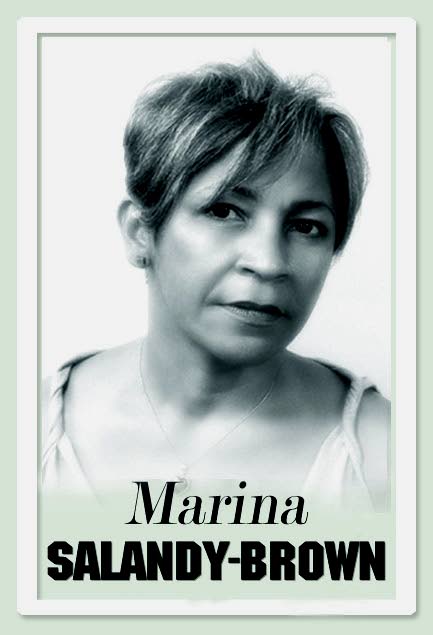We all have the same disease

We DO live in a kind of paradise on these twin islands of ours. It is this knowledge that makes us so frustrated that we can’t do better at running it and keeping it safe from deterioration, building successfully on our strengths and inordinate gifts. It is not the fault of any one government, but the result of our history and circumstances, some of which we can only partially control, and others that we have failed to alter since our independence.
To put the discomfort into some relief, though, I will compare our situation to what’s going on in the UK, where I am at the moment.
If I lived on these particular islands all the time, the seismic shifts in values and skills and modus operandi would be less stark, but after a year’s absence, I find them staggering.
Take the bald facts that explain some of what underlies the huge societal changes and despondency that accompanies them.
British educational standards have been declining for decades, and various attempts have been made to redress this, but, still, too many people are leaving school unprepared for the world of work. And the extremely prevalent new technologies are leaving many people behind, as elsewhere.
In the UK, five million adults have never used a computer, or last did so three months ago, yet everything is computerised. Around 15 per cent of people are functionally illiterate, with 1.5 million having a learning disability, and 50 per cent are functionally innumerate. And the numbers are reportedly growing.
One of the projects to salvage some of that now chronic situation had been to invest more in further education and to give people work skills, but I read that government spending on further education has fallen over the last eight years by 17 per cent, which is not insignificant.
On top of that, about five million people live in inadequate housing, 2.5 million cannot afford to pay their rent or mortgage, and 400,000 individuals are either homeless or on the verge of being so. This makes for a pretty discontented populace.
In addition, of course, is all the uncertainty over Brexit.
London is one of the most dynamic cities in the world, and therefore attracts many newcomers from abroad who have, over generations, allowed its institutions and services, including hospitals and transport systems, to work. Still more have contributed to the enormous ideas and skills bank that exists here in every area of human endeavour. Over 200 languages are spoken in the capital. People fetch up here, too, from all over the country, where generally they enjoy a lower standard of living.
UK employment is the highest it has been for the last 50 years, but the workforce includes many younger people who seem generally to be either under-educated or poorly trained, and foreigners – mainly from Europe. This might well change after Brexit (if it ever happens), but the results are twofold: firstly, at any one time there are diverse groups making up their own rules in a liberal society that is very tolerant and flexible; and secondly, very little actually works as it should. The language gap, the sense of established systems not being followed, the lack of knowledge matched with haughty disdain, poor service, a definite lack of experience and savoir faire, frustrate efforts to get most things done efficiently.
The problems of development we face in TT and the Caribbean are enormous, but getting it into perspective is helpful.
The comments of Esther Duflo, only the second woman and the youngest person to win a Nobel Prize for economics for “making a significant contribution to economic thought and knowledge,” are instructive. She said in an interview, “What we try to do in our work is unpack the problems one by one to better understand the reasons for particular problems. What works, what doesn’t work and why.”
We need a similar approach in politics. Democracy is suffering from a kind of whooping cough.
It is clear here in the UK, in the US and elsewhere that voters are split in many directions and that majority government is hard to secure, so that often countries end up with unworkable coalitions of minority parties. While politicians twiddle their thumbs the people’s ardour burns and new voices spring up in the gaps. All over the world, younger people are finding ways to express their discontent, which is hardening, and with good reason.
The profound lack of confidence in the political class and lack of trust in all public institutions is not helped by events such as last week’s advice from an influential member of the opposition Labour Party that Britons should not vote for Labour and its “unfit” leader, but rather for the present pro-Brexit Prime Minister in the general elections due a fortnight before Christmas.
The PM, however, has been widely ridiculed. Whoever wins any of the impending elections, anywhere, is going to have a very tough job to win hearts and minds.
And it’s clear that thereafter we cannot return to just business as usual.


Comments
"We all have the same disease"